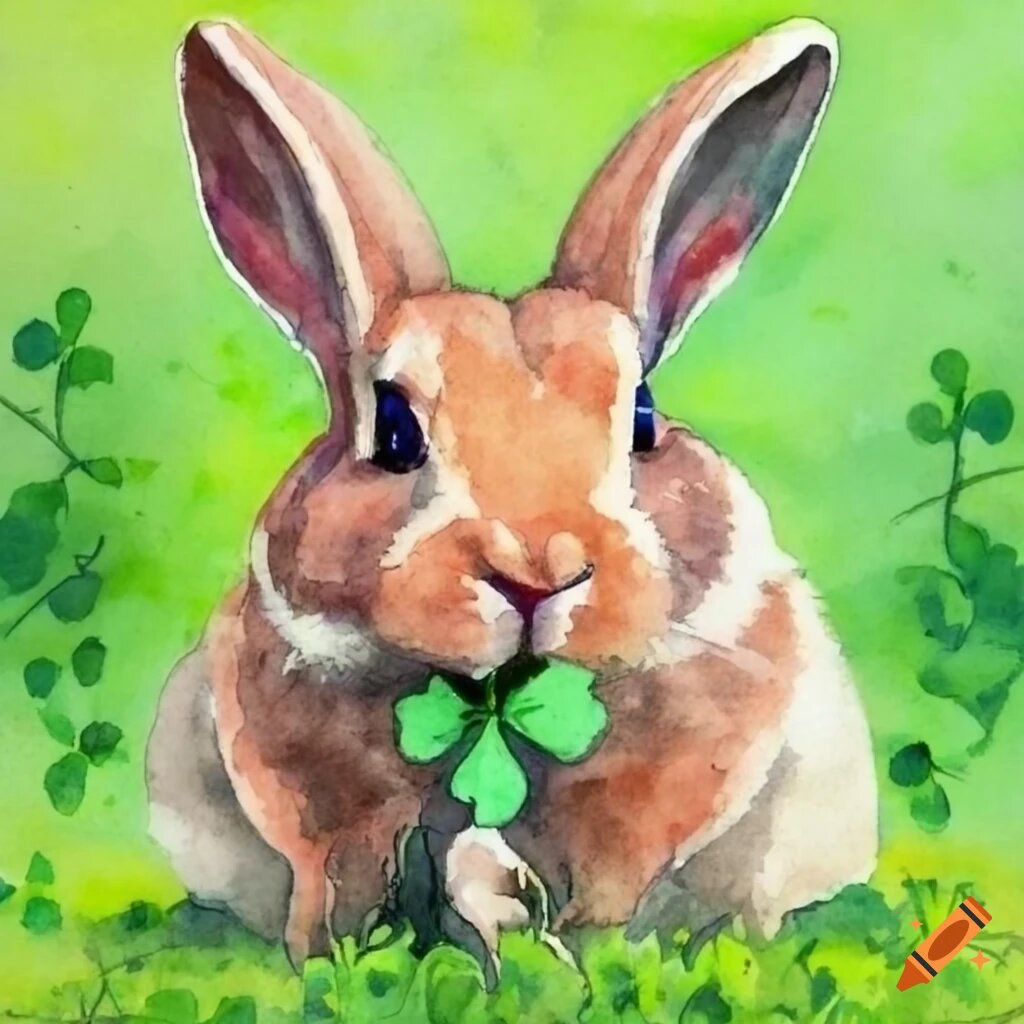Parsley can be a healthy addition to a rabbit’s diet when given in moderation. It’s a safe and nutritious addition to their diet, providing essential vitamins and antioxidants.
These adorable little creatures can enjoy parsley as part of their balanced diet. Not only does it add a pop of flavor to their meals, but it also provides essential vitamins such as A, C, and K that boost their immune system. Parsley, a member of the Apiaceous family, is a green powerhouse that is safe and beneficial for your bunny.
So, let’s dig in and learn more about why parsley is a great addition to your rabbit’s diet!
Nutritional Value of Parsley for Rabbits
Parsley is not only a delicious treat for your bunny but also a punch regarding nutritional value. This leafy green vegetable contains essential vitamins and minerals to benefit your rabbit’s health. One of the standout nutrients in parsley is vitamin C. Just like humans, rabbits cannot produce their vitamin C, so they rely on dietary sources to meet their needs. Luckily, parsley is packed with this immune-boosting vitamin, which can help keep your bunny healthy and happy.
In addition to vitamin C, parsley is also a good source of vitamin K. This vitamin is important for maintaining healthy bones and preventing blood clotting. Incorporating parsley into your rabbit’s diet can support their bone health and overall well-being. Another benefit of parsley is its high fiber content. Dietary fiber is essential for maintaining a healthy digestive system in rabbits. It helps to promote regular bowel movements and prevent issues like constipation. By offering parsley to your bunny, you can ensure their gut remains happy and healthy.
Lastly, parsley is a hydrating snack for your rabbit. With its high water content, parsley can help keep your bunny hydrated, especially during the warmer months or if they are prone to urinary tract problems. Overall, parsley is a nutrient-dense addition to your rabbit’s diet. It provides them with essential vitamins, promotes healthy digestion, and offers hydration. So, go ahead and treat your bunny to some parsley – they will love it!

Concerns of Feeding Parsley to Rabbits
Feeding parsley to rabbits should be approached with a few considerations in mind. While parsley can be a healthy addition to their diet in Moderation, there are some concerns:
Oxalates: Parsley contains oxalates, which, in excess, can lead to the formation of kidney or bladder stones in rabbits. Feeding it occasionally and in limited amounts helps mitigate this risk.
Digestive Upset: Introducing parsley suddenly or in large quantities might cause digestive upset in some rabbits. It’s essential to start with small amounts and observe their reaction.
Variety in Diet: Rabbits require a diverse diet, so while parsley can be offered, it shouldn’t be the sole or primary green in their meals. A mix of various vegetables and herbs is crucial for their overall health.
Quality and Pesticides: Always provide fresh, organic parsley when possible to avoid pesticides or harmful chemicals that could be present on conventionally grown parsley.
Balancing their diet and offering parsley as an occasional treat alongside other safe greens helps ensure a well-rounded and healthy feeding regimen for pet rabbits.
Bunny Bon Appétit!
If you’re ready to treat your bunny to a tasty and nutritious snack, it’s time to say bon appétit! Parsley is a fantastic addition to your rabbit’s diet, and they will surely enjoy munching on these flavorful leaves. But what makes parsley such a great treat for rabbits? First and foremost, parsley is packed with essential vitamins and minerals that benefit your furry friend. It contains high levels of vitamin C, crucial for boosting your rabbit’s immune system and keeping them healthy.
Additionally, parsley is a great source of vitamin K, which plays a vital role in maintaining healthy bones and preventing blood clotting. Not only is parsley rich in vitamins, but it also offers an abundance of dietary fiber. This fiber aids digestion, keeping your rabbit’s gut happy and healthy. It can prevent issues like constipation and promote regular bowel movements.
Feeding your bunny parsley can also provide them with a good source of hydration. Parsley has a high water content, helping to keep your rabbit hydrated throughout the day. This is especially important during the warmer months or if your rabbit is prone to urinary tract problems.
So, offer your bunny some parsley as a tasty and nutritious treat. Just remember to introduce new foods gradually to prevent any digestive upset. Your rabbit will thank you for adding this leafy green delight to their diet!
Is Parsley Safe for Rabbits
When it comes to feeding your furry friend parsley, you may wonder if it is safe for rabbits. The answer is a resounding yes! Parsley is generally considered safe for rabbits and can be a tasty and nutritious addition to their diet. However, as with any new food, it’s important to introduce parsley gradually to prevent any digestive upset.
Additionally, wash the parsley thoroughly before offering it to your rabbit to remove any potential pesticides or contaminants. It’s also crucial to feed parsley in Moderation as part of a balanced diet, alongside hay, fresh vegetables, and a limited amount of pellets. Following these guidelines, you can safely treat your rabbit to parsley and give them a flavorful and healthy snack. So give your bunny a taste of this leafy green delight!

How Much Parsley Can Rabbits Eat?
When feeding your rabbit parsley, it’s important to remember Moderation. While parsley can be a healthy and delicious addition to their diet, it should still be given appropriately. Rabbits have sensitive digestive systems, so avoiding overfeeding them with parsley or any other food is crucial.
Generally, you can offer your rabbit several parsley sprigs once or twice a week. This ensures they receive the nutritional benefits without overwhelming their system. It’s also important to remember that parsley should only make up a small portion of their diet. The majority of their diet should consist of fresh hay, supplemented with a variety of vegetables and a small amount of pellets.
Observing your rabbit’s behavior and overall health is key to determining the right amount of parsley. If they enjoy and tolerate it well, you can continue offering it in small quantities. However, if you notice any digestive issues or changes in their behavior, it may be a sign that they are receiving too much parsley.
Health Benefits of Parsley for Rabbits
Parsley can be a nutritious addition to a rabbit’s diet in moderation. Here are eight potential health benefits of parsley for rabbits:
- Vitamins and Minerals: Parsley is rich in vitamins A, C, and K, as well as minerals like calcium and potassium, which can contribute to a rabbit’s overall health and immune function.
- Digestive Health: The fiber content in parsley can aid in maintaining a healthy digestive system for rabbits, preventing issues like gastrointestinal stasis.
- Antioxidants: The antioxidants present in parsley may help reduce inflammation and support the rabbit’s immune system.
- Oral Health: Chewing on parsley can promote dental health in rabbits. The fibrous texture can help wear down their teeth naturally, preventing overgrowth.
- Hydration: Parsley has a high water content, which can contribute to the rabbit’s hydration, especially if they need more water from their bottle or bowl.
- Diuretic Properties: Parsley might have mild diuretic effects in rabbits, aiding in flushing out toxins from their system and supporting urinary tract health.
- Variety in Diet: Offering parsley as part of a varied diet can prevent monotony and encourage rabbits to eat more, ensuring they receive a balanced nutrition.
- Weight Management: In moderation, parsley can be a low-calorie treat for rabbits, providing enrichment without contributing to weight gain.
Remember, while parsley can be beneficial, offering it in moderation and as part of a well-rounded diet is crucial. Introduce new foods gradually to monitor any adverse reactions, and consult a veterinarian for specific dietary advice for your rabbit. Additionally, some rabbits might be sensitive to certain foods so individual reactions can vary.
Types of Parsley to Feed Your Rabbit
There are a few types of parsley that you can feed to your rabbit:
- Curly Parsley: This is the most common type of parsley. It has tightly curled, dark green leaves and stems. Rabbits generally enjoy both the leaves and stems of curly parsley.
- Flat-leaf Parsley (Italian Parsley): This variety has flat, broader leaves and a milder flavor than curly parsley. It’s safe for rabbits and a nice addition to their diet.
- Root Parsley (Hamburg Parsley): While the root of this parsley type can be edible for humans, rabbits can also nibble on the leaves and stems. It has a slightly different taste compared to curly and flat-leaf parsley.
All these varieties of parsley are safe for rabbits to consume in moderation. However, washing the parsley thoroughly before offering it to remove any potential pesticides or contaminants is essential. Always introduce new foods gradually and monitor your rabbit for any adverse reactions.
The Correct Diet Is Important
Providing your rabbit with the correct diet is crucial for their health and well-being. While parsley can be a tasty and nutritious addition to their meals, it should not be the sole component of their diet. Rabbits are herbivores and require a diet primarily composed of fresh hay, providing the necessary fiber for proper digestion. Alongside hay, rabbits should also have access to fresh vegetables and a limited amount of pellets. These pellets should be specifically formulated for rabbits and not exceed 25% of their daily food intake.
It’s important to remember that each rabbit is unique and may have different dietary needs. Some rabbits may tolerate parsley well, while others may experience digestive upset or other issues. Observing your rabbit’s behavior and overall health is crucial when introducing new foods, including parsley. If you notice any changes in their eating habits, stool consistency, or energy levels, it may be a sign that their diet needs adjustments.
Additionally, it’s essential to consult with a veterinarian or a rabbit-savvy nutritionist to ensure your rabbit is receiving a well-balanced diet. They can provide guidance specific to your rabbit’s needs and help you create a diet plan that supports their overall health and happiness.
Remember, the correct diet is key to maintaining a healthy and happy rabbit. While parsley can be a delicious and nutritious treat, it should always be given in Moderation and as part of a well-rounded diet. By prioritizing the right balance of hay, vegetables, and pellets, you can ensure your rabbit receives the nutrition they need to thrive.

FAQs
Can Rabbits Eat Parsley Stems?
Yes, rabbits can eat parsley stems. The stems contain similar nutrients to the leaves and are safe for rabbits to consume. However, as with any new food, it’s wise to introduce them gradually and in Moderation to ensure your rabbit has no adverse reactions. Some rabbits may prefer the leaves over the stems, but both parts are generally safe to eat.
Can Rabbits Have Parsley Oil?
It’s not recommended to give rabbits parsley oil. While parsley can be a suitable addition to their diet in Moderation, parsley oil is highly concentrated and might be too strong for a rabbit’s digestive system. The concentrated nature of the oil can cause digestive upset or other health issues in rabbits. Sticking to fresh parsley leaves or stems in small quantities is safer as a treat for your rabbit.
Can Rabbits Eat Italian Parsley?
Yes, rabbits can eat Italian parsley just like other types of parsley. Italian parsley is safe for rabbits and provides similar nutritional benefits as other varieties of parsley, offering vitamins and antioxidants. As with any new food, it’s wise to introduce it slowly and in Moderation to ensure it agrees with your rabbit’s digestive system. Italian parsley can be a tasty and nutritious addition to a rabbit’s diet.
Do Wild Rabbits Eat Parsley?
Wild rabbits might occasionally eat parsley if available in their environment, but it’s not a staple part of their natural diet. Wild rabbits primarily consume grass, weeds, and other plants in their habitat. Parsley rabbits can eat, an herb often cultivated by humans, might be rare in the wild where these rabbits forage. However, if they come across it, they might nibble on it along with other greens.
Will Parsley Give My Rabbit Diarrhea?
Parsley can sometimes cause diarrhea in rabbits, especially if given excessively. It contains fiber and certain compounds that, in large quantities, might upset a rabbit’s digestive system, leading to loose stools or diarrhea. Introduce parsley gradually and in small portions to monitor how your rabbit reacts. If you notice any digestive issues, reduce the amount or frequency of parsley given to prevent diarrhea. Always ensure a balanced diet and moderate portions of parsley to avoid potential digestive problems.
Conclusion About Can Rabbits Eat Italian Parsley
In conclusion, parsley can be a delightful and nutritious addition to your rabbit’s diet. It is safe for rabbits to eat and offers a range of health benefits. From boosting their immune system with vitamin C to supporting healthy bones with vitamin K, parsley provides essential nutrients for your bunny’s well-being.
Additionally, the high fiber content promotes good digestion and regular bowel movements. Offering parsley to your rabbit can also help keep them hydrated, especially during warmer months or if they have urinary tract concerns.
Remember to introduce parsley gradually and wash it thoroughly to ensure its safety. Moderation is key, as parsley should only make up a small portion of your rabbit’s overall diet. Providing a well-balanced diet of fresh hay, vegetables, and a limited amount of pellets can ensure your rabbit receives the nutrition they needs to thrive.
Consult with a veterinarian or a rabbit-savvy nutritionist for personalized guidance on your rabbit’s diet. So go ahead and treat your bunny to some parsley – they’ll love the flavor and the benefits it brings!

